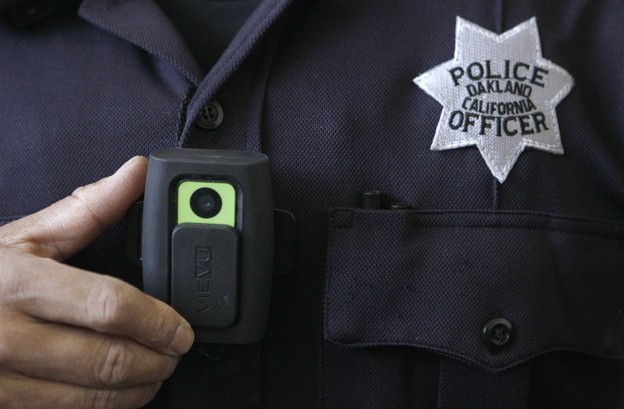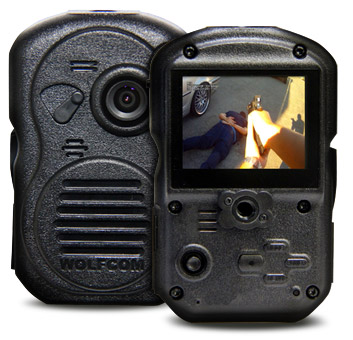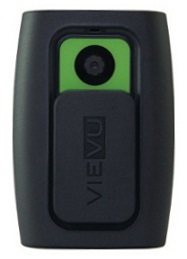DVRs become part of the standard equipment of police

More and more police units, primarily in the USA, Canada, Australia, are equipping their employees with portable video recorders, which are mounted on a uniform and allow you to record everything that happens around the policeman on video. Already, several companies produce specialized personal recorders, with the possibility of mounting on clothing, with a shockproof weatherproof case, switching with a walkie-talkie and other interesting technical details. Even more interesting is the tangle of legal and moral problems that is tied around such cameras.

Here are some examples of what suppliers offer. The Martel Vid-Shield camera writes up to 60 frames per second in FullHD format and takes pictures with a resolution of 12 megapixels. The camera has infrared light. Settings and functions for editing and deleting clips can be protected by a password, the individual police officer number that wears it can be stored in the camera's memory.
The camera body has an IP67 protection class - it is protected from dust and can withstand short-term immersion in water. The camera writes video on the microSD card and has a viewing angle of 120 degrees. Price - 600 dollars.
')
 Wolfcom 3d eye for $ 900 also writes video in FullHD, but the resolution of the pictures is slightly higher - 16 megapixels. Built-in 32 gigabytes of flash memory allows you to record up to 17 hours of video or 500 hours of audio - the camera can be used as a voice recorder. A rich set of accessories allows you to fasten it on a uniform, in a car, at the end of a telescopic baton, to inspect hard-to-reach places. It can be connected to the police radio as a headset.
Wolfcom 3d eye for $ 900 also writes video in FullHD, but the resolution of the pictures is slightly higher - 16 megapixels. Built-in 32 gigabytes of flash memory allows you to record up to 17 hours of video or 500 hours of audio - the camera can be used as a voice recorder. A rich set of accessories allows you to fasten it on a uniform, in a car, at the end of a telescopic baton, to inspect hard-to-reach places. It can be connected to the police radio as a headset.The camera has a GPS receiver and records the exact time and place of shooting with each frame. The software allows you to watch a policeman’s route with a camera on a map while watching a video. Batteries last for 6-12 hours of shooting or a week in stand by mode. Like Vid-Shield, there is an infrared light, the viewing angle is 120 degrees, the recording is activated by pressing one button.
 The third popular police camera is the Vievu LE2 . It also costs $ 900, although its characteristics are more modest, since this model is already outdated - the company entered the market of personal police registrars one of the first, if not the very first. Perhaps in a short time Vievu will update the model to keep up with competitors. The camera shoots with a resolution of 640x480, has a waterproof housing, writes up to 4 hours of video on the built-in memory of 4 gigabytes. The video is time stamped and digitally signed.
The third popular police camera is the Vievu LE2 . It also costs $ 900, although its characteristics are more modest, since this model is already outdated - the company entered the market of personal police registrars one of the first, if not the very first. Perhaps in a short time Vievu will update the model to keep up with competitors. The camera shoots with a resolution of 640x480, has a waterproof housing, writes up to 4 hours of video on the built-in memory of 4 gigabytes. The video is time stamped and digitally signed.Like any sufficiently powerful technology, the camera can be used for both evil and good. It is interesting that among the supporters of the mass introduction of such cameras there are police officers themselves and human rights organizations that fight police violence. Almost every registrar maker mentions a so-called “second strike” problem in advertising - when a criminal aggressively attacks a police officer, he uses force, and then a video from someone's smartphone appears on the network or in court, which starts from the moment the policeman hits detainee.
Founder of Vievu, Steve Ward himself worked as a policeman in Seattle. He very often had to deal with the fact that lawyers were seeking the release of the delinquent criminals on the pretext that the police officers during the detention behaved unreasonably harshly. If the process of arrest is recorded from the very beginning, it is immediately clear who attacked whom and who first took the weapon.
Security consultant Thomas Streicher gives another argument - up to 65% of overtime hours of police work during his time as Cincinnati police chief had to wait under the doors of the courtroom to testify. It cost the city $ 4.5 million per year. The availability of video recordings can greatly reduce the need for the personal presence of police officers at court hearings.
 At the same time, Darius Charney, a representative of the New York Center for the Protection of Constitutional Rights, believes that the idea of using cameras in every interaction of a policeman with citizens is promising . In his opinion, the camera will force the police to behave more correctly and use force only in extreme cases. Naturally, this will only work if the police do not have the opportunity to edit the record, and the detainee and his lawyers have access to it. Technically, this is easy to do using cryptography, but creating a legislative framework can take years.
At the same time, Darius Charney, a representative of the New York Center for the Protection of Constitutional Rights, believes that the idea of using cameras in every interaction of a policeman with citizens is promising . In his opinion, the camera will force the police to behave more correctly and use force only in extreme cases. Naturally, this will only work if the police do not have the opportunity to edit the record, and the detainee and his lawyers have access to it. Technically, this is easy to do using cryptography, but creating a legislative framework can take years.In the Montreal police fraternity, it is argued that pilot projects for the introduction of recorders in some areas show that the camera really effectively cools the hotheads - the number of incidents of violence used by both police officers and citizens against police officers there decreased by 60%.
Opponents of DVRs are in the same way among police officers and among social activists. The latter are predictably worried about privacy and the all-seeing ocean of Big Brother. More cameras, even more observers invade our lives, and this is unpleasant for many. A state that already stores a huge amount of information about its citizens will receive even more data, and therefore even more power.
The fears of the police are more practical. Assistant Commissioner of the Police of New York Paul Brown believes that as soon as the use of cameras will become widespread, the police will be bombarded with claims of privacy violations. In general, it is precisely the absence of a legislative base that worries the police most. When it is possible to turn on the camera, when to turn it off, how should a policeman warn about recording what to do if a citizen protests against video filming? There are no official answers to all these questions yet. The legal status of these records is also not always unequivocal. There are tactical flaws. In a critical situation, when it is necessary to act quickly, the police officer will have to choose whether to turn on the record first, at the risk of getting a bullet, or snatch a pistol, at the risk of being left without proof of his case.
Most likely, the appearance of cameras on the shoulder of each police officer is only a matter of time. After all, now almost everyone has a smartphone with a camera in their pockets. The beginning of the open sales of Google Glass is just around the corner, and their numerous clones are not long in coming. It would be strange to expect that the authorities will not want to participate in this celebration of life, where everyone takes pictures and makes notes of everyone.
Source: https://habr.com/ru/post/182262/
All Articles